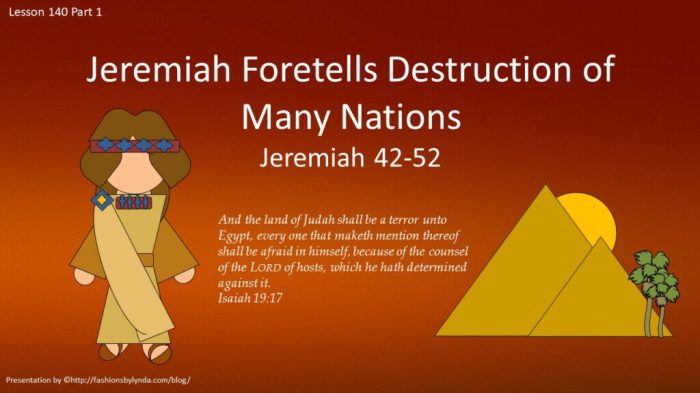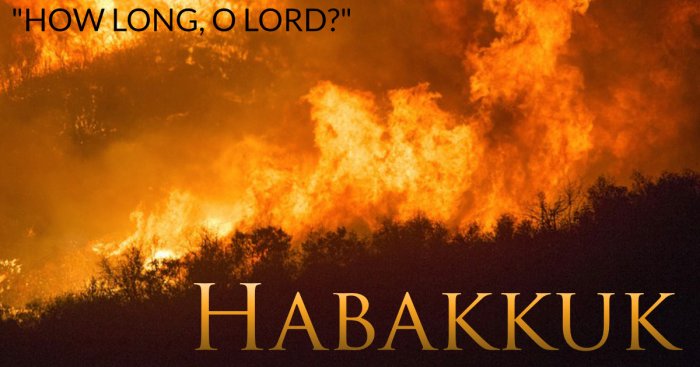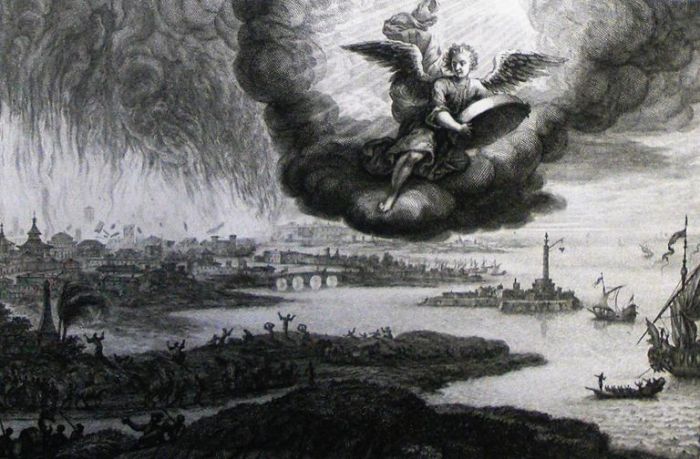As the Book of Habakkuk presents the destruction of Babylon, readers are transported into a captivating realm of theological intrigue and historical significance. The prophet’s profound lamentations and God’s subsequent response paint a vivid tapestry of injustice, judgment, and ultimate hope.
Delving into the depths of this ancient text, we will explore the historical context of the Babylonian Empire and its tumultuous relationship with Judah. We will analyze Habakkuk’s emotional struggles and the transformative revelation that God imparts to him.
Historical Context
The Book of Habakkuk emerged during the tumultuous period of Judah’s history, around the late 7th century BC. The Babylonian Empire, under the rule of Nebuchadnezzar II, posed a significant threat to Judah’s sovereignty and religious identity.
Political tensions escalated as Babylon expanded its territories, encroaching upon Judah’s borders. Religious tensions were also heightened, as the Babylonians worshiped a pantheon of gods, while Judah adhered to monotheism.
Habakkuk’s Lament

In response to the injustices and violence prevalent in Judah, the prophet Habakkuk addressed a heartfelt complaint to God. He expressed his dismay over the rampant wickedness and the seemingly indifferent response of the divine.
Habakkuk’s emotional and spiritual struggles are evident in his lamentation, as he grapples with the dissonance between God’s righteousness and the prevailing evil in his surroundings.
God’s Response

God responds to Habakkuk’s lament by revealing his plan to use Babylon as an instrument of judgment against Judah. Babylon’s impending destruction is prophesied, a consequence of their own wickedness and oppression.
This divine response highlights God’s sovereignty and his commitment to justice, even if it involves using one nation to punish another.
Babylon’s Destruction
The Book of Habakkuk depicts Babylon’s destruction with vivid imagery. The city is described as a place of chaos and terror, with its walls breached and its inhabitants scattered.
The consequences of Babylon’s fall extend beyond its physical destruction. It symbolizes the downfall of an oppressive empire and the triumph of justice over evil.
Habakkuk’s Response

Habakkuk’s response to God’s revelation is one of faith and trust. Despite the impending destruction, he expresses his confidence in God’s justice and sovereignty.
His message conveys themes of hope and restoration, reminding the people of Judah that even in the midst of adversity, God remains faithful and his purposes will ultimately prevail.
Literary Structure
| Division | Themes | Key Verses |
|---|---|---|
| Prologue (1:1-4) | Habakkuk’s complaint | 1:1-4 |
| God’s Response (1:5-11) | Announcement of Babylon’s destruction | 1:5-11 |
| Habakkuk’s Second Lament (1:12-2:1) | Continued complaint and plea for understanding | 1:12-2:1 |
| God’s Response (2:2-20) | The judgment on Babylon and its consequences | 2:2-20 |
| Epilogue (3:1-19) | Habakkuk’s prayer and song of praise | 3:1-19 |
The Book of Habakkuk employs various poetic forms, including lamentations, prophecies, and hymns.
Theological Themes: The Book Of Habakkuk Presents The Destruction Of Babylon
The Book of Habakkuk explores several key theological themes:
- Justice: God is a just and righteous God who will ultimately punish evil and vindicate the oppressed.
- Judgment: God’s judgment is inevitable for those who persist in wickedness and oppression.
- Sovereignty: God is sovereign over all creation and his purposes will ultimately be fulfilled, despite the challenges and injustices that may arise.
Contemporary Relevance

The Book of Habakkuk continues to hold relevance in contemporary times, offering a message of hope and encouragement in the midst of suffering and injustice.
Its teachings remind us that God remains faithful and sovereign, even when circumstances seem bleak. It encourages us to trust in his justice and to find hope in the midst of adversity.
Questions and Answers
What is the historical context of the Book of Habakkuk?
The Book of Habakkuk was written during the reign of the Babylonian Empire, which had conquered Judah and taken many of its people into exile.
What is Habakkuk’s main complaint to God?
Habakkuk complains to God about the injustice and violence he sees in Judah, and he questions why God does not intervene.
How does God respond to Habakkuk’s complaint?
God responds to Habakkuk by announcing that He will use Babylon to punish Judah for its sins.
What is the significance of Babylon’s destruction?
Babylon’s destruction is significant because it demonstrates God’s sovereignty and His ability to judge nations for their sins.
What is the message of hope in the Book of Habakkuk?
The message of hope in the Book of Habakkuk is that God is faithful and will ultimately restore His people.